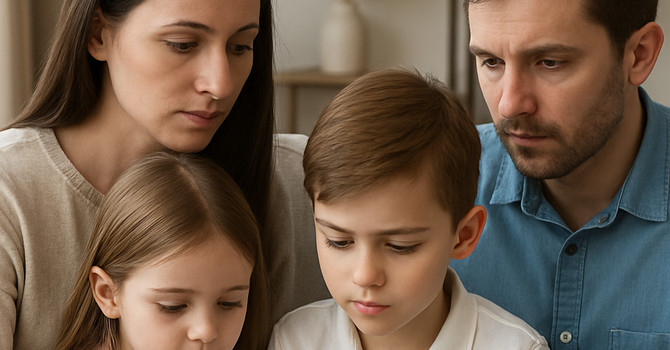
When someone we love passes away, it’s natural to anticipate tears as part of the grieving process. But what happens when the tears don’t come? It can leave you feeling disconnected, even questioning your feelings for the person you’ve lost. If this resonates with you, know that you’re not alone—and not crying doesn’t mean you aren’t grieving.
Grief is deeply personal, and there’s no right or wrong way to experience it. Let’s explore some reasons why tears may not come and ways to care for yourself during this challenging time.
Why Am I Not Crying?
-
Shock and Emotional Numbness
Grief can be overwhelming, and in the early stages, your mind may protect you by creating a sense of emotional numbness. This is a normal response, allowing you to cope gradually. -
Cultural Influences and Beliefs
Many of us grow up with messages about how we “should” grieve. If you’ve internalized the idea that crying is a sign of weakness—or even strength—you might suppress tears without realizing it. -
Practical Distractions
When a loss occurs, life doesn’t pause. Managing funeral arrangements, supporting others, or juggling everyday responsibilities can leave little room for emotional release. -
Coping Styles
Some people naturally process emotions inwardly, thinking or journaling rather than expressing outward signs like crying. Neither approach is more valid than the other.
Gentle Ways to Process Your Grief
If you’re struggling with not crying—or simply feeling disconnected from your grief—here are a few suggestions to help you navigate this experience:
- Give Yourself Permission to Feel: You don’t need to force tears to grieve “correctly.” Instead, focus on giving yourself space for whatever emotions come up, whether through quiet reflection, creative expression, or physical activity.
- Engage in Remembrance: Writing a letter to your loved one, creating a scrapbook, or lighting a candle in their memory can help you connect to your feelings in meaningful ways.
- Talk About It: Sharing your experience with a trusted friend, family member, or counselor can provide validation and support.
- Practice Self-Compassion: Remind yourself that grief has no timeline, and your process is unique to you.
Helpful Resources for Navigating Grief
If you’re looking for guidance, these resources may offer comfort and insight:
-
Books:
- It’s OK That You’re Not OK by Megan Devine
- The Year of Magical Thinking by Joan Didion
- On Grief and Grieving by Elisabeth Kübler-Ross and David Kessler
-
Websites:
- HealGrief - The tools and resources for healthy post-bereavement growth – A hub for understanding grief and finding support groups.
- What's Your Grief – Articles, podcasts, and courses for those navigating loss.
-
Apps:
- Grief Coach – Offers daily supportive messages tailored to your grieving experience.
- Headspace – A mindfulness app with meditations to help process difficult emotions.
A Reflective Closing
As someone who has experienced the complexities of loss, I understand how disorienting grief can feel—especially when it doesn’t look the way you expected. When my Nana and Grandpa passed away just weeks apart, I noticed my grief came in waves. Sometimes I cried; sometimes I didn’t. Both were valid expressions of my love for them.
If you’re navigating the absence of tears, I encourage you to treat yourself with the same kindness and patience you’d offer a friend. Grief has many forms, and it’s not about how it looks but how it feels to you.
You are not alone.
.JPEG)
.JPEG)





